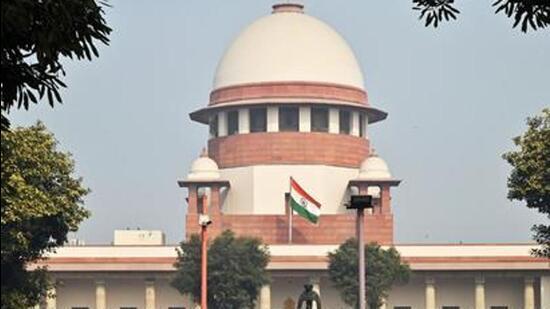
Calling someone ‘Miyan-Tiyan’ & ‘Pakistani’ not an offence: Supreme Court
In a recent ruling, the Supreme Court has made it clear that calling someone “Miyan-Tiyan” and “Pakistani” may be in poor taste, but it does not constitute an offence. This decision was made in a case where an 80-year-old man was accused of hurling abuses at an Urdu translator in Jharkhand.
The case was filed against the 80-year-old man, who allegedly used abusive language against the Urdu translator, calling him “Miyan-Tiyan” and “Pakistani”. However, the Supreme Court has ruled that the remarks do not amount to hurting the religious sentiments of the translator.
The court’s decision may come as a relief to many who have been accused of using derogatory language, but it also raises important questions about the use of such language and its impact on society.
The Case
The case was filed in the Supreme Court after the 80-year-old man, who was not named in the report, was accused of making derogatory remarks against the Urdu translator. The translator, who was working on a project in Jharkhand, alleged that the 80-year-old man hurled abuses at him, calling him “Miyan-Tiyan” and “Pakistani”.
The case was filed under Section 295A of the Indian Penal Code, which deals with deliberate and malicious acts intended to outrage the religious feelings of any class by insulting its religion or religious beliefs. However, the Supreme Court has now ruled that the remarks made by the 80-year-old man do not amount to hurting the religious sentiments of the translator.
The Ruling
The Supreme Court’s ruling is a significant one, as it clarifies the boundaries of what constitutes an offence under Section 295A of the Indian Penal Code. The court has made it clear that using derogatory language may be in poor taste, but it does not necessarily amount to an offence.
The court’s decision is also significant because it highlights the importance of context and intent in determining whether a particular act constitutes an offence. In this case, the court found that the 80-year-old man’s remarks were made in a fit of anger, rather than as a deliberate attempt to outrage the religious feelings of the translator.
Implications
The Supreme Court’s ruling has important implications for the use of derogatory language in society. While it may be tempting to use such language in the heat of the moment, the court’s decision makes it clear that this is not a justifiable excuse for using abusive language.
The ruling also highlights the importance of tolerance and understanding in society. In a country as diverse as India, where different communities and religions coexist, using derogatory language can be particularly harmful. It can create divisions and foster resentment, rather than promoting understanding and harmony.
Conclusion
In conclusion, the Supreme Court’s ruling that calling someone “Miyan-Tiyan” and “Pakistani” is not an offence is a significant one. While it may be in poor taste to use such language, the court’s decision makes it clear that it does not necessarily amount to an offence. The ruling highlights the importance of context and intent in determining whether a particular act constitutes an offence, and it emphasizes the importance of tolerance and understanding in society.






